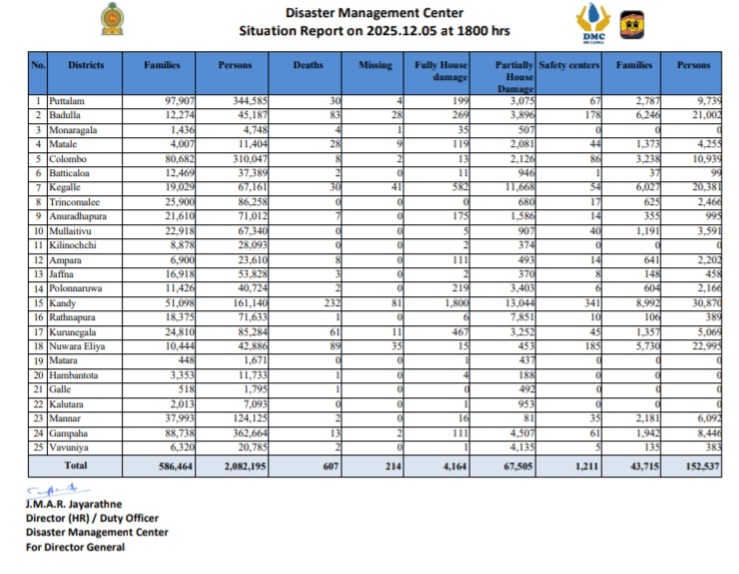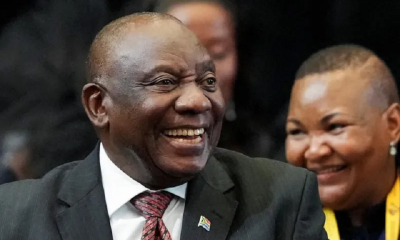Latest News
Ravindra 240 and Jamieson’s burst make it New Zealand’s day

Coming into the Mount Maunganui Test, Rachin Ravindra had never batted in the top six in Test cricket and had all of 73 runs in six innings at 14.60. In just one innings here, the left-hander has more than tripled his numbers on both counts. Given the all-important No. 4 slot, Ravindra cashed in scoring a sparkling 240 to help New Zealand extend their dominance over South Africa on day two of the first Test.
South Africa captain and debutant Neil Brand finished with figures of 6 for 119, but Ravindra’s double on the back of Kane Williamson’s 118 helped New Zealand amass 511 in their first innings. Kyle Jamieson struck twice as South Africa ended the second day 80 for 4 still trailing the hosts by a massive 431 runs.
Resuming their day on 258 for 2, New Zealand lost Williamson early, but Ravindra continued from where he left on day one. With the second new ball just six overs old, South Africa surprisingly did not go with Tshepo Moreki first up on the second day, instead starting with allrounder Ruan de Swardt and Dane Paterson.
Paterson got the wobble seam going his way and induced an edge off Ravindra’s blade with just his second ball but there was no third slip in place to take the catch. Williamson got his first boundary of the day with a thick edge past gully but failed to carry on. Looking to unsettle de Swardt’s consistent wicket-to-wicket lines, he eyed an uncharacteristic cross-batted hoick, but all he could manage was a top edge that ballooned straight up with Moreki taking the catch at mid-on. That ended a 232-run association between Williamson and Ravindra off 472 balls.
Having been padded up for ages, Mitchell immediately got going with a full-blooded lofted drive past mid-on. Moreki didn’t have the same kind of nip that he found on day one and was pulled stylishly by Ravindra through midwicket. Duanne Olivier was handed similar treatment before two delicious straight drives helped Ravindra breach the 150 mark in Tests for the first time.
Having played circumspect cricket for about four sessions, New Zealand notched up a gear after lunch. Ravindra got his second session underway with a delightful drive past mid-off off de Swardt while Mitchell pulled Dane Paterson with disdain through square leg.
Mitchell lofted de Swardt for a straight six but fell soon after courtesy of a stunning caught and bowled by Neil Brand. Mitchell pummeled a tossed-up length ball back but Brand stuck out both hands to his left and plucked out a quite spectacular take much to the shock of Mitchell.
Tom Blundell came in and struck a four but soon mistimed a heave to short midwicket who took a low catch. Meanwhile, it was a nervous wait for Ravindra on 199. With Blundell falling and Glenn Phillips not able to hand him back the strike, the youngster had to endure close to 20 minutes on the score and go through a drinks break as well.
Ravindra finally reached the milestone by cutting a short-of-a-length ball towards cover as he removed his helmet to soak up the applause. With the double-hundred checked, Ravindra and Phillips decided to go into overdrive adding a 82-run stand off just 71 balls for the sixth wicket.
Ravindra notched up the highest score by a New Zealand batter for his maiden Test century when he went past Matthew Sinclair’s 214 but fell minutes before tea cleaned up by Brand for 240. South Africa struck four times in the session, but New Zealand had added 145 runs in 27 overs going at over five an over.
New Zealand came looking for some quick runs in the final session and Matt Henry provided that by smashing one four and three sixes in his nine-ball 27. Brand, however, picked the last three wickets first going through Mitchell Santner’s defences and then taking out Henry and Tim Southee in one over to become the first South African spinner to bag a six-for on Test debut.
In reply, the South African openers, Brand and Edward Moore, both on debut, held their own for nine overs and a bit. Moore got going with a fierce cut off Southee through point before repeating the shot for a similar result. Brand was more solid in defense getting right behind the line of the ball.
Jamieson, however, came on and changed the face of the match. He first sent back Brand with a fuller delivery that threatened to come back in but held its line. Brand, unsure whether to play or leave the delivery fathered a tiny edge to the wicketkeeper. Two balls later debutant Raymond van Tonder was trapped right in front of the stumps by a Jamieson inswinger. Henry then got rid of Moore with a snorter that he could only glove to Conway who rushed in from cover-point to dive and complete a stunning catch as South Africa slipped to 30 for 3 after 15 overs.
David Bedingham and Zubayr Hamza, however, took the attack to the opposition. Hamza first struck Henry for two successive fours before Bedingham cracked Southee for three fours in the next over. Bedingham was dropped by Henry at deep backward square leg but barring that looked largely untroubled. The duo added 44 off 53 balls for the fourth wicket before Hamza was castled by Santner.
At the end of play on the second day, Bedingham had reached 29 off 39 balls with five fours to his name and had Keegan Peterson for company on 2.
Brief scores:
South Africa 80 for 4 in 28 overs (David Bedingham 29*, Edward Moore 23, Zubayr Hamza 22; Kyle Jamieson 2-21) trail New Zealand 511 in 144 overs (Tom Latham 20, Rachin Ravindra 240, Kane Williamson 118, Daryl Mitchell 34, Glenn Phullips 39, Matt Henry 27; Neil Brand 6-119, Ruan de Swardt 2-61) by 431 runs
Latest News
Landslide RED warnings continue to be in force for the Districts of Kandy, Kegalle, Kurunegala, Matale and Nuwara Eliya

The RED Landslide Early Warnings issued by the Landslide Early Warning Center of the National Building Research Organization [NBRO] to the Districts of Kandy, Kegalle, Kurunegala, Matale and Nuwara Eliya have been extended until 1600hrs today [06th December 2025]. Landslide Early warnings have also been issued to the districts of Badulla, Colombo, Galle, Gampaha, Kalutara, Matara, Monaragala and Ratnapura,
Accordingly,
LEVEL III RED warnings have been issued to the Divisional Secretaries Divisions and surrounding areas of Gangawata Korale, Deltota, Doluwa, Thumpane, Medadumbara, Minipe, Pathahewaheta, Yatinuwara, Ganga Ihala Korale, Akurana, Udunuwara, Panvila, Pathadumbara, Kundasale, Pasbage Korale, Hatharaliyadda, Ududumbara, Poojapitiya, Harispattuwa and Udapalatha in the Kandy district, Galigamuwa, Kegalle, Mawanella, Rambukkana, Dehiowita, Warakapola, Deraniyagala, Bulathkohupitiya, Ruwanwella, Yatiyanthota and Aranayaka in the Kegalle district, Narammala, Mawathagama, Mallawapitiya, Alawwa, Rideegama and Polgahawela in the Kurunegala district, Rattota, Wilgamuwa, Ukuwela, Pallepola, Matale, Laggala Pallegama, Yatawatta, Naula and Ambanganga Korale in the Matale district, and Nildandahinna, Walapane, Hanguranketha and Mathurata in the Nuwara Eliya district.
LEVEL II AMBER warnings have been issued to the Divisional Secretaries Divisions and surrounding areas of Uva Paranagama, Kandeketiya, Bandarawela, Soranathota, Hali_Ela, Meegahakivula, Badulla, Ella, Haputhale, Lunugala, Welimada, Passara and Haldummulla in the Badulla district, Nuwara Eliya, Ambagamuwa Korale, Thalawakele, Norwood, Kothmale West and Kothmale East in the Nuwara Eliya district, and Kahawaththa, Godakawela and Kolonna in the Ratnapura district.
LEVEL I YELLOW warnings have been issued to the Divisional Secretaries Divisions and surrounding areas of Padukka and Seethawaka in the Colombo district, Elpitiya and Yakkalamulla in the Galle district, Mirigama, Attanagalla and Divulapitiya in the Gampaha district, Bulathsinhala, Ingiriya and Horana in the Kalutara district, Athuraliya and Pasgoda in the Matara district, Bibile and Medagama in the Monaragala district, and Kiriella, Nivithigala, Eheliyagoda, Kuruwita, Kalawana, Pelmadulla, Elapatha, Balangoda, Openayake, Imbulpe, Ayagama, Ratnapura and Kaltota in the Ratnapura district.
Latest News
Fakhar Zaman fined 10% of match fee for showing dissent at umpire’s decision

Pakistan’s Fakhar Zaman has been fined 10% of his match fee and docked one demerit point after he was found guilty of breaching level 1 of the ICC code of conduct during the tri series final against Sri Lanka on November 29.
Fakhar was found to have breached article 2.8 of the code of conduct, which relates to “showing dissent at an umpire’s decision during an international match.” He admitted to the offence and accepted the sanction proposed by the match referee, so there was no need for a formal hearing, said an ICC release.
The incident occurred in the 19th over of the final when Fakhar back-peddled from short-third, dived and seemed to have taken a stunning catch off Dasun Shanaka’s leading edge. The third umpire was called to check for the catch, and he deemed that the ball brushed the ground when Fakhar dived, and ruled it not out. Both Fakhar and the bowler, Shaheen Shah Afridi weren’t happy with the decision and made it known to the on-field umpires.
The very next ball, Shanaka swiped across the line and was clean bowled. Fakhar looked at the umpire and sarcastically appealed for the decision. Pakistan eventually won the final by six wickets as batting first, Sri Lanka collapsed in a heap, losing 9 for 30 to be bowled out for 114. Babar Azam shepherded the chase with an unbeaten 37, taking Pakistan over the line in 18.4 overs.
This was Fakhar’s first offence in a 24-month period. Level 1 breaches carry a minimum penalty of an official reprimand, a maximum penalty of 50% of a player’s match fee, and one or two demerit points.
[Cricinfo]
Latest News
Death toll rises to 607, missing persons reduce to 214 at 1800hrs today (5)

The situation report issued by the Disaster Management Centre at 1800hrs today (5th December) confirms that 607 persons have died due to the adverse weather conditions while the number of missing persons has reduced to 214.
The number of persons affected topped the 2 million mark (2,082,195).

-

 News6 days ago
News6 days agoWeather disasters: Sri Lanka flooded by policy blunders, weak enforcement and environmental crime – Climate Expert
-

 Latest News7 days ago
Latest News7 days agoLevel I landslide RED warnings issued to the districts of Badulla, Colombo, Gampaha, Kalutara, Kandy, Kegalle, Kurnegala, Natale, Monaragala, Nuwara Eliya and Ratnapura
-

 Latest News7 days ago
Latest News7 days agoINS VIKRANT deploys helicopters for disaster relief operations
-
News3 days ago
Lunuwila tragedy not caused by those videoing Bell 212: SLAF
-

 Latest News4 days ago
Latest News4 days agoLevel III landslide early warnings issued to the districts of Badulla, Kandy, Kegalle, Kurunegala, Matale and Nuwara-Eliya
-

 News2 days ago
News2 days agoLevel III landslide early warning continue to be in force in the districts of Kandy, Kegalle, Kurunegala and Matale
-

 Features4 days ago
Features4 days agoDitwah: An unusual cyclone
-

 Latest News7 days ago
Latest News7 days agoWarning for Cyclonic storm “Ditwah”

























